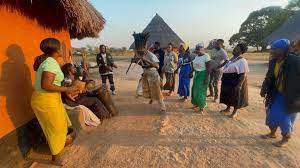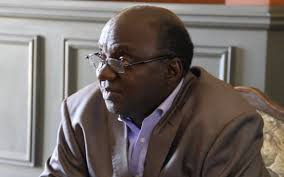
PRESIDENT Emmerson Mnangagwa has assented to a historic law that criminalises sexual relations with persons under the age of 18, while outlawing the defence that the child consented.
The Criminal Law Amendment (Protection of Children and Young Persons Act) 2024 (Number 1) also makes infecting a child with sexually transmitted infections a serious offence.
Various activists have hailed the milestone law, saying this will enhance the protection of children.
The law was gazzetted on Tuesday after Cabinet agreed that it was a necessary step forward in protecting minors from paedophiles.
Under the new law, having sexual intercourse, anal sexual intercourse with or perpetrating aggravated indecent assault on anyone under the age of 18 is now a punishable offence.
Brothel owners who provide havens for paedophiles will be charged as accomplices.
“Any person who commits upon a child any act involving physical contact that would be regarded by a reasonable person to be an indecent act or solicits or entices a child to have sexual intercourse with him or her or to commit any act with him or her involving physical contact that would be regarded by a reasonable person to be an indecent act shall be guilty of (having) sexual intercourse or performing an indecent act with a minor, as the case may be, and liable to a fine not exceeding level 12 or imprisonment for a period not exceeding 10 years or both.
“It shall be no defence to a charge of sexual intercourse or performing an indecent act with a child to prove that he or she consented to such sexual intercourse or indecent act.”
- Too young to marry: The secret world of child brides
- New law answers exhumations and reburials question in Zim
- NoViolet Bulawayo’s new novel is an instant Zimbabwean classic
- Jah Prayzah, Zanu PF rekindles ‘lost love’
Keep Reading
Other offences that are incorporated in the protection of children are deliberate infection of a child with syphilis, gonorrhea, herpes, HIV, among other infections.
Legal practitioner Diana Kawenda had approached the Constitutional Court challenging the laws in the Kawenda versus the Justice, Legal and Parliamentary Affairs minister and other, which delivered a landmark ruling that the laws governing protection of children were unconstitutional.
The Constitutional Court also declared that the Criminal Law (Codification and Reform) Act does not adequately protect children between ages 16 and 18 from sexual exploitation, while certain provisions of the Code — the definition of “young person” in section 61 of the Code and sections 70, 76, 83 and 86 — were unconstitutional and void.
The court, however, suspended its order for 12 months — until May 23, 2023 — to give government time to enact a law protecting all children against sexual exploitation.
Mnangagwa incorporated the Bill’s provisions in a set of regulations under the Presidential Powers (Temporary Measures) Act, which were published in January this year.
The provisions came into operation immediately and provided immediate protection to young persons, but only temporarily because regulations made in terms of the Presidential Powers Act expire after 180 days and it expired on July 10.
The Bill was sent to Parliament and with opposition, it became part of the country’s laws this week.
Kawenda welcomed the development in an interview yesterday, adding that the most important thing moving forward was to educate potential victims and offenders on the Act.
“It is a welcome development as far as constitutionalism in Zimbabwe is concerned. This is one of the cases which have shown the power of constitutionalism and how it can serve as a transformative tool in protecting the vulnerable persons in our society.
“The Constitution as the supreme law has won. It is now important for societies to be made aware of these changes, raise constitutional literacy in our communities at all levels for the public to become aware and also for possible victims to be aware of how the law protects them,” she said.
Pan-African Positive Women’s Coalition Zimbabwe national co-ordinator Tendai Westerhof said the law was a relief due to rampant child marriages in the society.
“Children should be protected against any harm caused by perpetrators. We have witnessed rampant child marriages and lodge owners who gave shelter to children sex predators will be prosecuted.
“We had people who were taking advantage of children after abusing them and they say they consented now the Bill said they will not have any defence in court meaning they are convicted already before they appear in court,” she said.
Primary and Secondary Education minister Torerai Moyo recently revealed that more than 4 500 girls dropped out of school after falling pregnant, with 134 of them being primary school pupils.










